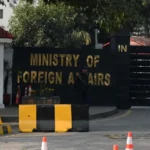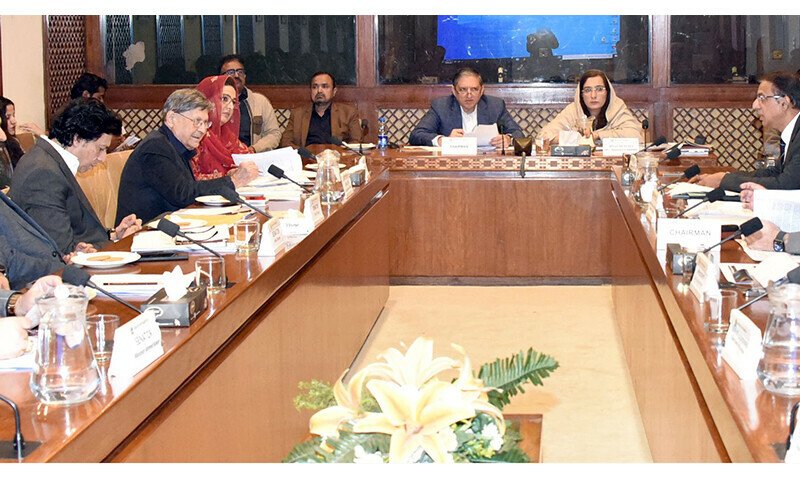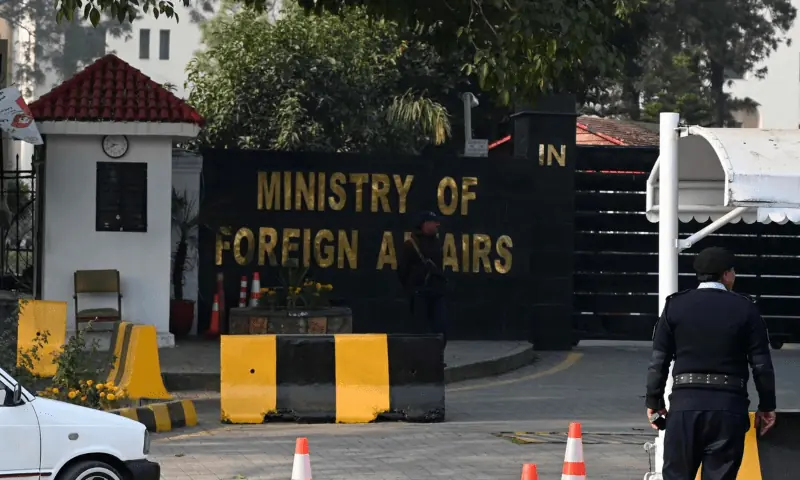ISLAMABAD: A parliamentary panel on Wednesday asked the prime minister and finance minister to immediately stop the “scandalous” purchase of over a thousand cars by the Federal Board of Revenue (FBR) for its officials at a time when there is a revenue shortfall of Rs 384 billion in the first half of the current fiscal year.
A meeting of the Senate Standing Committee on Finance, chaired by Saleem Mandviwalla of the People’s Party, asked the prime minister and the finance minister to revoke purchase orders hastily issued by the FBR to a single automobile assembler without any tender and take action . against the people involved so that the government does not face further embarrassment.
Prime Minister Shehbaz Sharif had recently approved the purchase of 1,010 cars for FBR officers to improve their operational efficiency at the special request of Rashid Mehmood Langrial, chairman of the board.
The issue was raised by Senator Faisal Vawda, who criticized the purchase of cars for an FBR force, without any link with performance, which had missed the revenue collection target by a wide margin of Rs 384 billion. He said the purchase of cars worth Rs 6,000 crore could only be justified if the beneficiaries could recover at least half of the shortfall. If they don’t, they should be punished instead of rewarded, he added.
A purchase order for more than 1,000 cars was issued to a single company without any tender
“This is a scam and must be stopped as soon as possible,” he said, recalling that on the same day (January 10) the approval of the Cabinet’s Economic Coordination Committee (CEC) and the purchase order for 1,010 Honda cars were issued. and no other assembler was even considered or given the opportunity to bid.
The senator said the entire process was designed so that only one assembler could participate. “This is malicious and, in a very blatant way, doors have been opened to corruption.”
Vawda said Toyota had offered lower rates, better specifications and add-ons, higher fuel efficiency and a longer after-sales warranty, but the offer was rejected only because the company’s cars were 1328 cc, while the FBR proposal specified vehicles up to 1300 cc.
He said electric vehicles should also have been considered and other companies such as Hyundai and Nissan should have been given the opportunity to submit their bids.
He said the officials involved should be questioned and reprimanded.
“This is very worrying and should be stopped,” Mandviwalla said.
Anusha Rehman, a PML-N senator, said the process “seems to be tailor-made” and the finance minister should stop it immediately.
The Senate committee grilled the FBR administration chief after he failed to convince the body about the reasons behind the purchase of these vehicles.
He said that technical and procurement committees were formed for the purchase of these vehicles. The process began many months ago and was not done suddenly. He stated that procurement rules allowed for direct contracting.
Committee members wondered why the ECC summary specified only vehicles up to 1,300 cc, why other companies were excluded from the competition and why the purchase order was issued in haste.
“It seems like the 1,300cc condition was mentioned by design,” Saleem Mandviwalla said, adding that social media was rife with criticism of the process. He said he had also discussed the matter with Minister of State for Finance Ali Pervaiz Malik and agreed to examine whether the rules had been followed or not.
A senior Finance Ministry official told the committee that as per rules, the ministry cannot stop the board from purchasing these vehicles because the latter worked under a separate revenue division, which is headed by the FBR chairman himself.
State-owned companies
The committee later considered a private member’s bill, the State Enterprises (Governance and Operation) (Amendment) Bill, 2024. Introduced by Senator Anusha Rehman, the bill gained unanimous approval from the body. Provides clearer guidelines for the operation and governance of state-owned enterprises (SOEs).
The key debate centered on Section 3(1) of the State-Owned Enterprises Act, 2023, which specifies that the law applies to all public sector companies (PSCs) and other corporate entities controlled by the federal government.
It was noted that the law does not apply to entities in which the federal government’s participation is less than 51 percent.
While the Finance Ministry argued that the existing clause was sufficient to address concerns regarding privatization of public enterprises, Senator Anusha Rehman emphasized the need for clarity in the definition of state-owned enterprises, especially in cases where entities privatized companies continue to face legal ambiguity regarding their status.
In some cases, state-owned companies are allowed to buy shares in a listed company, bringing the government’s share to 51 percent. In such cases, private investors face challenges, Senator Anusha observed.
“As legislators, we must make laws that evolve with the changing times to benefit the general public,” said Senator Farooq Naek. The committee agreed and passed the bill by consensus.
Published in Dawn, January 23, 2025








